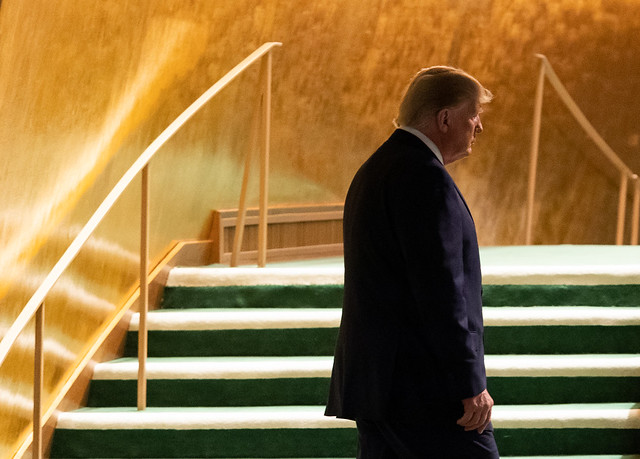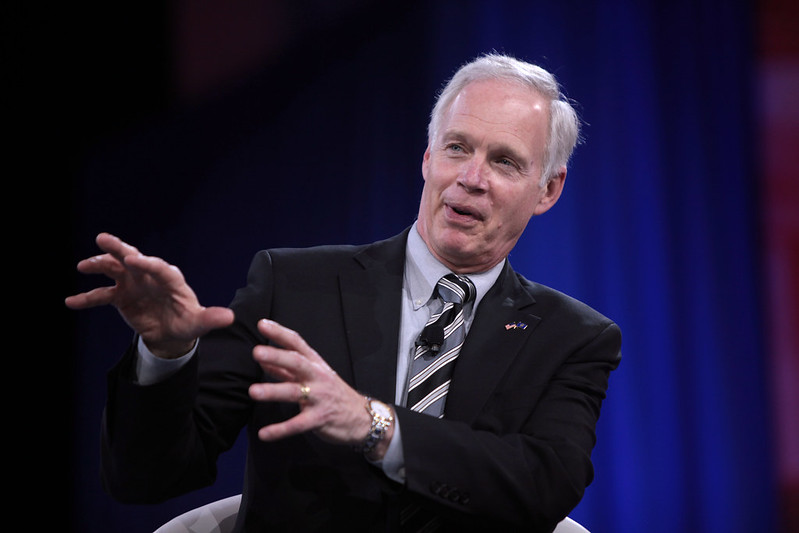Don’t Over-Legalize Impeachment
As soon as the news broke that President Trump had pressured Ukraine’s president to investigate the son of Democratic presidential nominee Joe Biden—including by threatening to withhold hundreds of millions of dollars in badly needed military assistance—commentators began analyzing whether the president broke the law.

Published by The Lawfare Institute
in Cooperation With

As soon as the news broke that President Trump had pressured Ukraine’s president to investigate the son of Democratic presidential nominee Joe Biden—including by threatening to withhold hundreds of millions of dollars in badly needed military assistance—commentators began analyzing whether the president broke the law. They’ve asked whether Trump violated federal campaign finance law by soliciting “something of value” for the 2020 campaign—that thing being dirt on Democratic front-runner Joe Biden. They’ve considered whether Trump violated the anti-bribery statute by conditioning the delivery of U.S. funds to Kyiv on a Ukrainian investigation. Earlier today Trump released detailed notes of his call with the Ukrainian president, in which he urged an investigation of Biden, suggested collaboration between Ukraine and Attorney General William Barr on the matter, and, while not referring directly to the withheld assistance, brought up his request about Biden in response to the Ukrainian president’s mention of U.S. aid. No doubt legal analysts will pore over the document for evidence of federal lawbreaking.
This is an understandable impulse, but it should be resisted, at least for now. The question is not whether Trump broke federal criminal law. The question is whether he has failed to uphold his constitutional duties and should be impeached and removed from office.
The country has been down this road before: The president acts contrary to core constitutional norms in ways that implicate Congress’s powers of oversight, impeachment and removal, but the public debate ends up focusing on narrow, technical questions of criminal law. Special Counsel Robert Mueller’s charge was to investigate whether the president, his campaign or his associates broke federal law either in the campaign’s conduct with the Russian government in the lead-up to the 2016 election or in Trump’s subsequent attempts to obstruct investigations into the campaign. It was clear early on that Trump had both welcomed Russian interference in the election and committed multiple acts—from firing FBI Director James Comey to pressuring Attorney General Jeff Sessions to take control of the Russia probe—meant to frustrate the investigation.
Yet Mueller failed to recommend criminal charges on either issue. On the issue of Russian election meddling, Mueller noted that “collusion” with a foreign power is not a federal crime and concluded that the evidence did not support the legal requirement of “conspiracy” to commit a crime. On the issue of the obstruction, Mueller’s (admittedly murky) conclusions seem to be that while Trump plausibly committed multiple acts of the crime of obstruction of justice, DOJ policy prevented Mueller, in his capacity as a federal prosecutor, from charging (and thus from accusing) a sitting president of a crime. In both cases, core questions about the president’s constitutional duties were transformed into narrow, technical questions of statutory interpretation and federal criminal law.
This is not to criticize Mueller, who was tasked with conducting a criminal investigation and who did so with rigor and care. Nor is to criticize those who are now analyzing whether Trump’s actions regarding Ukraine constituted federal crimes. These are important questions, both to clarify the scope of the criminal statutes and to determine what criminal liability the president may face once he leaves office.
But applying general criminal statutes to the president is legally fraught, especially when the president is acting within his core constitutional powers. In the Russia case, that power involved the president’s ability to direct the conduct of executive branch officials and fire those in whom he had lost confidence. The current situation concerning Ukraine implicates the president’s largely unfettered role as “sole organ” in the conduct of foreign relations and the limited ability of prosecutors and courts to police the president’s exercise of that discretion. Any legal analysis of Trump’s conduct will quickly get bogged down in difficult technical questions—not only whether his actions fell within the relevant statutes but also whether the statutes should even apply to presidential conduct (an issue that also dogged the Mueller investigation).
L’Affaire Russe could largely be treated as a matter of federal criminal law in part because there was no prospect that Congress would deal with the heart of the matter: whether President Trump’s conduct rose to the level of an impeachable offense. In part this is because Republicans controlled both houses of Congress through 2018. But it’s also because, even after Democrats took control of the House, Speaker of the House Nancy Pelosi clearly wanted to avoid the potential political blowback from impeaching Trump (especially given his likely acquittal by the Republican-controlled Senate).
As the Ukraine scandal proceeds into a formal impeachment inquiry, the House would be wise to characterize the conduct at issue not in the language of criminal law but, rather, in the language of constitutional duty. (Susan Hennessey, Quinta Jurecic and Benjamin Wittes have helpfully provided a model for how to do that.) Early signs suggest this is already happening. In announcing the impeachment inquiry, Pelosi focused on the constitutional dimensions of the president’s actions: “The actions of the Trump presidency revealed dishonorable facts of the president’s betrayal of his oath of office, betrayal of our national security and betrayal of the integrity of our elections.” And an op-ed by seven freshmen Democrats endorsing impeachment avoided discussion of criminality, instead focusing on the substantive question: “whether the president was indeed willing to use his power and withhold security assistance funds to persuade a foreign country to assist him in an upcoming election.”
In a hyperpolarized political environment, it’s tempting to analyze all problems through a legal lens. The law is one of the few American institutions remaining with a claim to legitimacy, which it maintains by virtue of its neutrality. But it shouldn’t be the only standard by which presidents are judged. The purpose of the criminal law is to decide who goes to jail; the question of what counts as a “high crime and misdemeanor” is meant to determine when a chief executive is no longer fit for office. There is obviously some overlap, but criminality is neither necessary nor sufficient. And although impeachment is an inherently political process, that doesn’t mean it is any less legitimate or less respectful of the rule of law than is the criminal process. Long-standing constitutional norms counsel against using impeachment except in the gravest of circumstances and certainly not as a tool of partisan warfare. The Clinton impeachment suggests that voters will punish politicians who push impeachment for frivolous reasons. And the high procedural barriers—impeachment by House majority followed by removal by two-thirds of the Senate—ensure a kind of due process, both for the president and for the people who voted for him.
There will be time to sort out the issues of legal criminality; impeachment doesn’t preclude that, and it may well turn out that Trump broke the law. But right now the focus should be on whether Trump satisfied his constitutional duties: to “take care that the laws be faithfully executed” and to “preserve, protect and defend the Constitution of the United States.” We won’t need the criminal law to know if he’s failed.



-final.png?sfvrsn=b70826ae_3)

